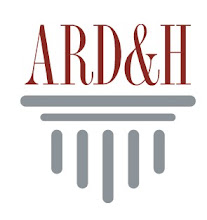It’s a New Year with new seasons of our favorite TV shows. Too bad the legal dramas haven’t resolved to use realism in their scripts.
The Good Wife just gets worse and worse. In one episode, a divorce lawyer framed a client’s husband to look like he was cheating. If that weren’t enough, the firm lied about having a copy of a signed document from the divorce case. After a frantic search, the lead divorce attorney surprised the rest of the firm by magically producing the document in the 11th hour to present to opposing counsel.
In the following week’s episode, the law firm took tens of thousands of dollars in fees…by cashier’s check rather than cash. Any lawyer knows that the cashier’s check is the equivalent of cash and must be reported.
We then have the client who is being hounded for representing an unknown business owner and refusing to tell our heroes who his client is. He bases this refusal on attorney-client privilege. Of course, he has the same privilege with his lawyers and they could not have revealed the information. AND, as it turns out, he was lying. He actually was one of the three clients.
As usual, they make the judge look like a jerk.
Then, we have the state’s attorney co-opting a law firm employee to steal information (or the whole file), which she turns it over to the prosecutors. Part of the basis is that “the good wife” forged a signature which is a felony for which she could be disbarred.
Of course, she would have to be prosecuted by her husband. The employee turns over the file to hurt the partner who is being investigated-who actually did nothing wrong, except for introducing a bookie to his judge friends. That’s their problem not his.
If that weren’t enough, this show also makes the federal agents look like jerks and puts them down-primarily for being efficient.
I took a break from blogging about The Good Wife because the drama, in many ways, outweighed the legalities-but no more. Sadly, even the drama parts (i.e. relationships) have gotten silly.
Stay tuned for my next blog about the new TV version of The Firm. Let’s hope it doesn’t disgrace Grisham’s classic legal thriller.
